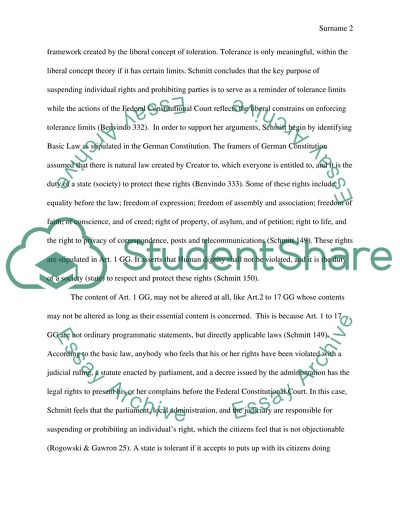Cite this document
(“An argument on The Basic Law and the Limits of Toleration Essay”, n.d.)
An argument on The Basic Law and the Limits of Toleration Essay. Retrieved from https://studentshare.org/history/1461219-an-argument-on-the-basic-law-and-the-limits-of
An argument on The Basic Law and the Limits of Toleration Essay. Retrieved from https://studentshare.org/history/1461219-an-argument-on-the-basic-law-and-the-limits-of
(An Argument on The Basic Law and the Limits of Toleration Essay)
An Argument on The Basic Law and the Limits of Toleration Essay. https://studentshare.org/history/1461219-an-argument-on-the-basic-law-and-the-limits-of.
An Argument on The Basic Law and the Limits of Toleration Essay. https://studentshare.org/history/1461219-an-argument-on-the-basic-law-and-the-limits-of.
“An Argument on The Basic Law and the Limits of Toleration Essay”, n.d. https://studentshare.org/history/1461219-an-argument-on-the-basic-law-and-the-limits-of.


